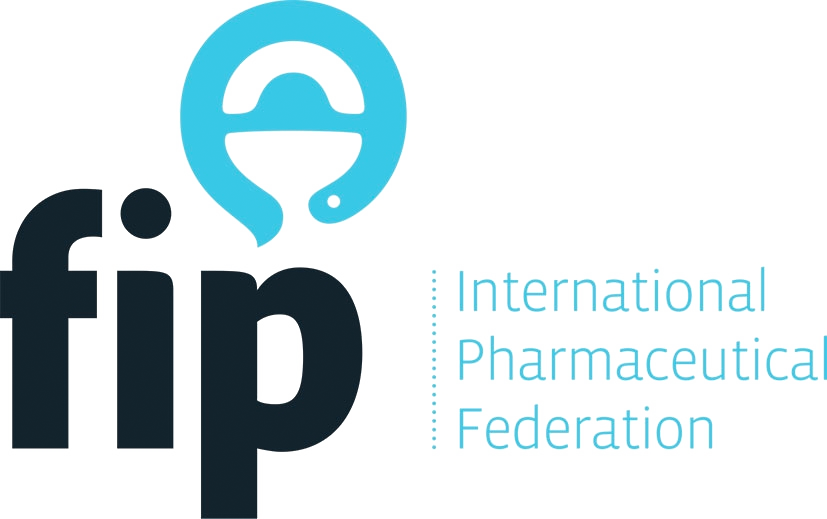May 2013 - updated May 2019 - updated May 2025
The World Health Professions Alliance (WHPA) brings together the International Council of Nurses, the International Pharmaceutical Federation, World Physiotherapy, FDI World Dental Federation and the World Medical Association, and speaks for more than 42 million health professionals in 130 countries and territories. The Alliance works to improve global health and the quality of health services and facilitates collaboration among the health professions and other major stakeholders.
Download the statement (pdf)
WHPA is committed to improving the health of populations worldwide through the efficient, effective, and equitable delivery of preventive, curative, rehabilitative and palliative services. Health professionals strive to deliver high quality services within their scope of practice and with respect for the expertise of other members of the multi-professional team. However, for individuals accessing health services, there may appear to be duplication, gaps, and discontinuity as they progress through the health system. This is a challenge that the health professions can address positively together and with other agencies.
According to WHO: "Collaborative practice happens when multiple health workers from different professional backgrounds work together with patients, families, carers and communities to deliver the highest quality of care across settings". (1)
For WHPA, however, the term, “interprofessional collaboration” refers to collaboration between health professionals, who are licensed/regulated, highly educated, and adhere to strict codes of ethics. The broader term “health workers” covers many health service providers, such as personal care workers in health services and community health workers, who often operate in unregulated environments with variable levels of training and accountability. Conflating health professionals and health service providers can have significant impact on the quality of care and patient safety. (2) Collaboration between health professionals and health service providers, in the form of consistent supervision and oversight by health professionals, is essential, for example to ensure the quality and safety of person-centred care and to progress towards universal health coverage. However, it is a different relationship to the interprofessional collaboration covered by this statement.
Effective interprofessional collaborative practice (ICP) can lead to:
- improved access to health interventions and improved coordination between different sectors for individuals and their families, with more involvement in decision making and improved continuity of care;
- improved patient outcomes, safety, and quality of care, particularly for complex cases and chronic diseases;
- more equitable care for marginalized populations or those in resource-limited settings;
- a comprehensive, coordinated, and safe health system that is responsive to the needs of the population;
- efficient and more sustainable use of resources;
- reduced incidence and prevalence of disability, especially when applied across the continuum of health services (health promotion, illness and injury prevention, disease management and cure, and rehabilitation); and
- increased job satisfaction and improved working environment, with reduced stress and burnout of health professionals when supported by collaborative and coordinated teams.
In a culture of social responsiveness, effective ICP should be guided by the following principles:
Policies and governance structures facilitate and support opportunities for ICP
- Governments and agencies must provide appropriate funding, and structure health systems to support ICP. These include not only health services and systems, but also health professional education and regulation.
- Health professional associations should be actively engaged together in discussions and the development of ICP policy, governance structures and funding models.
- Professional regulatory systems and processes, including professional competencies, practice standards, and scopes of practice should permit and facilitate effective collaborative practice at the global and national levels.
- With universal health coverage becoming more widely available, ICP is a valuable tool for maximizing the effective use of these services.
Health system infrastructures enable ICP
- There must be a sufficient supply of health professionals to meet population needs.
- There should be an equitable distribution of health professionals and resources, especially in underserved and marginalized populations, to address disparities in access to care and health outcomes. ICP can help reduce these disparities by improving coordination and providing comprehensive, patient-centered care.
- Collaborative teams should have appropriate and complementary skills, thus ensuring access to the right professional at the right time in the right place. The skill mix will differ according to the purpose of the team that has been brought together, the characteristics and needs of patients/clients and the practice setting.
- Administrative systems, including human resources and financial planning, budget setting and reimbursement, should all support collaboration.
- ICP should apply across the continuum of health services, including preventative, curative, rehabilitative and palliative professional services.
Education programmes and opportunities promote and facilitate shared learning
- Initial (professional entry level) and post professional education, including advanced levels of education and continuing professional development programmes, should adopt a philosophy of ICP and include opportunities for joint and person-centred, problem-oriented learning and professional socialization, in both clinical and academic environments.
- Education programme accreditation requirements should address the need to facilitate shared learning and to prepare graduates for ICP.
ICP policies and practice are based on sound available evidence
- The evidence for the efficacy of ICP for health outcomes continues to be built. Effective monitoring of health outcomes, practice and research in diverse communities and settings is required and the best ways to educate interprofessionally need to be researched.
- Widely accessible health information systems generating current and accurate information are required to support ICP. Health information systems are also needed for the evaluation and monitoring of health outcomes, and to build the evidence base for informing policy.
- For effective ICP, health systems that support information sharing, within appropriate privacy and confidentiality constraints, are required.
- Use of health data and technology, such as electronic health records (EHRs) or artificial intelligence (AI), are increasingly playing a key role in managing and interpreting health data and can enhance ICP. Health professionals need to have sufficient AI literacy and knowledge about careful stewardship to navigate the complexities of AI in healthcare delivery, while respecting an individual’s privacy, upholding human rights and safety, and honoring confidentiality. This technology should be designed and deployed to empower humans and not replace the personal relationship between patients and health professionals.
Professional practice centres on the needs of the individual recognizing the skills and attributes of individual professions
- ICP supports person-centred practice. By placing the focus on the needs of individuals, their families and communities and recognizing they are part of the collaborative team, professional differences are minimized and shared decision making is developed in partnership. Collaborative practice also involves advocacy on behalf of the person/s receiving care at the individual level.
- ICP requires mutual respect, competence, trust, and synergy among team members. Professionals, sharing a common purpose, recognize and respect each other’s body of knowledge, role, and team-agreed responsibilities. When the individual contributions of all professionals are recognized, there is more likely to be appropriate and timely referral and a good matching of competencies to a person’s needs. Whenever there are overlapping scopes of practice, collaborative teams ensure that the professional with the best match of expertise to the needs of the individual is engaged at the appropriate time.
- ICP requires effective communication, enhanced by team members talking and actively listening to each other and to the individual concerned and his/her significant others (family, carers, advocates).
Conclusion
The World Health Professions Alliance promotes interprofessional collaborative practice through advocacy, by example and by promoting educational, legislative, and health systems changes that bring about and strengthen interprofessional collaborative partnerships. Such partnerships will be encouraged to share their experiences and serve as examples to others, thus spreading the knowledge of best practice. As health systems vary around the world, WHPA recognizes that interprofessional collaborative practices must consider the local context.
References:
- World Health Organization. (2010) Framework for action on interprofessional education and collaborative practice. Geneva, Switzerland: WHO.
- World Health Professions Alliance. (2024) Statements on UHC Day: Invest in health professionals for high-quality primary health care to achieve UHC [website]
- World Health Organization. (1990) International Statistical Classification of Diseases and Related Health Problems 10th Revision Geneva, Switzerland: WHO.
- World Health Organization. (2001) International Classification of Functioning, Disability and Health. Geneva, Switzerland: WHO.




